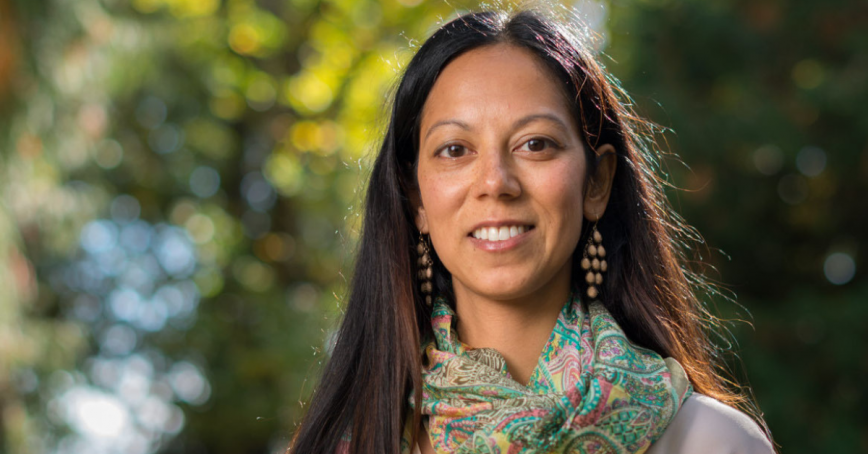RRU researcher receives $300K grant to advance energy poverty research

A Royal Roads University researcher and her collaborators have been awarded an almost $300,000 grant to advance their research into energy poverty in Canada.
Dr. Runa Das, an associate professor and core faculty member in Royal Roads’ College of Interdisciplinary Studies, was awarded the Social Sciences and Humanities Research Council Insight Grant along with Mylene Riva, a health geographer from McGill University, and Mari Martiskainen of the University of Sussex (UK) Business School.
Das, Martiskainen and RRU colleague Julie MacArthur published a paper earlier this year titled A Review and Analysis of Initiatives Addressing Energy Poverty and Vulnerability in Ontario, Canada in the journal Renewable & Sustainable Energy Reviews. It focused on “initiatives that assisted energy-poor and energy-vulnerable households in Ontario, Canada during 2003 to 2018.”
“Energy poverty is this idea of the inability to access and achieve adequate levels of social and material needs through energy services — the important things that energy fundamentally provides,” Das explains.
Practically, that may mean people aren’t comfortable in their homes, due to drafts, air leakage and lack of energy efficiency. It may also mean that people can’t afford their energy bills, so they are forced to reduce their consumption of energy for heating, cooling and cooking. Income, dwelling conditions and geography are among the factors that put people in a position of energy poverty, she says.
This new project, funded at $297,484 over four years, will aim to answer the question “How can energy poverty be defined, measured and addressed in the Canadian context?”
To do that, researchers are looking to widen the scope of collaborators to include end users of energy, stakeholders, decision makers and even representatives of power utilities, she says.
Additionally, the research aims to identify what drives and exacerbates energy poverty; determine who is energy vulnerable; and get a deeper understanding of the impacts of energy poverty on their well-being and everyday life. It will also assess how equitable government interventions and policies are and propose new ways to measure energy poverty in Canada.
Equitability is key, as the UN Sustainable Development Goals #7 is “Ensure access to affordable, reliable, sustainable and modern energy for all,” but also because governments and other agencies are planning the transition to low-carbon forms of energy, giving all involved a rare opportunity to build something that leaves nobody behind regardless of how much money they earn or where they live.
“It’s a great point from which to start,” says Das. “I think that’s pretty amazing.
“I am excited to be able to continue the work because I think there’s desire on the part of government decision makers, policy makers to try to get these energy transitions right.
“I don’t think it’s just politics. I think there is a genuine desire. It’s like climate change: we know we need to do something. We know we want these transitions to be equitable. If our research can in any way help to understand how to go about doing that, I will be very happy to have the opportunity to do so with this team.
“I also think energy is a fundamental need,” Das says, adding, “It’s critical to do this now.”